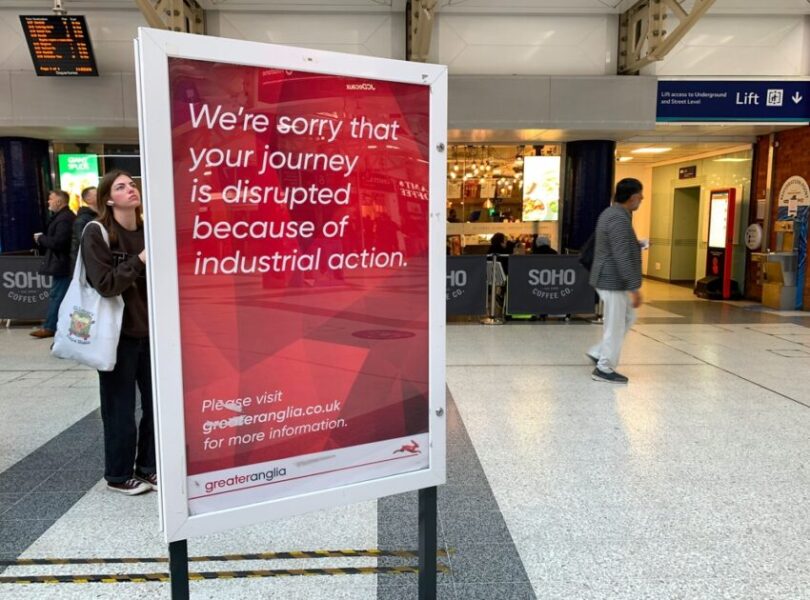Rail passengers in England face another day without trains as a strike by train drivers halts most services.
Members of the Aslef union are on strike for the second time in four days, in a 24-hour walkout timed to coincide with the final day of the Conservative party conference in Manchester.
The strike, the 14th stoppage by Aslef since the dispute started in June 2022 across all the train operators contracted to the Department for Transport, means no trains will run on most English routes, and cross-border services to Wales and Scotland will be affected.
Only a few train companies, including Great Western, Greater Anglia, Southern and LNER, will run any services.
The strike raised the prospect of the prime minister, Rishi Sunak, potentially announcing in his conference speech the cancellation of future HS2 high-speed train services from London to Manchester on a day with no intercity trains running between the cities.
Aslef has said it was targeting the governing party’s conference after train drivers had gone more than four years without a pay rise.
Mick Whelan, the Aslef general secretary, said there had been no further talks with the government or rail firms since April, after the union rejected a “risible” offer.
The Rail Delivery Group, representing train operators, has said further talks could only happen if drivers would agree to change working conditions.
Whelan added his voice to those opposing the cancellation of HS2’s northern leg, which he said “doesn’t make sense”. He said: “If you don’t finish it now, there’s no point in what we’ve done to build it already.”
An overtime ban by drivers will continue through the week until Friday, forcing some operators to reduce schedules and increasing the likelihood of further short-notice cancellations.
A proposed Tube strike, in a separate dispute, was called off on Tuesday. Thousands of RMT workers were set to take action on Wednesday and Friday against planned reductions in jobs at London Underground, which the union said would affect working conditions and safety.
The RMT said the strikes had been called off after “significant progress” in talks with London Underground at conciliation service Acas.
The union’s general secretary, Mick Lynch, said the threat of a strike had led to it “securing this victory”, adding: “We still remain in dispute over outstanding issues around pensions and working agreements and will continue to pursue a negotiated settlement.”
Transport for London said the resolution was “good news for London” and reiterated that no employee would lose their job under its proposals, as it seeks to cut costs in the wake of Covid under the terms of a financial settlement with central government.


